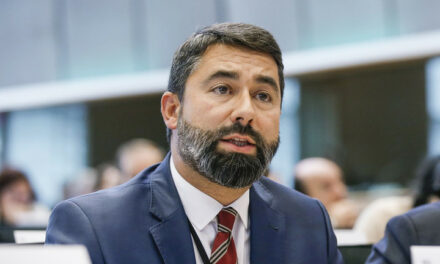A decision is expected in the spring at the earliest, and there is a chance that the case of the president of the Tisza Party will be entrusted to a socialist EU representative.
It turned out that there are 160 cases related to the suspension of immunity in the database of the European Parliament, the oldest of which dates back to 1998. The procedure lasted only four months in the case of Anna Donáth, 12 months for István Ujhelyi and 15 months for Béla Kovács.
"It is therefore difficult to estimate in advance how long the procedure will last regarding Péter Magyar's right to immunity, especially in light of the fact that it is in the interest of the European People's Party to prolong the procedure. After all, until it is concluded, they can arrest Péter Magyar with his immunity and thus influence him to pursue a policy favorable to them."
- said László Dornfeld, senior analyst of the Center for Fundamental Rights.
It has now been revealed that the European Parliament's plenary session can decide on the chief prosecutor's motion to suspend Péter Magyar's immunity in the first quarter of next year at the earliest.
Roberta Metsola, the President of the European Parliament, announced on October 10 that a request to suspend Hungary's immunity was submitted to the legal committee of the representative body. The spokespersons of the committee delegated by the factions are expected to name the MEP who will prepare the parliamentary recommendation on the request on November 18, or a few weeks later at the latest
Népszava reported .
According to the rules, the rapporteurs of all immunity cases are chosen by the party groups on a rotating basis, but the designated representative cannot be from the same political group or member state as the one whose case is being discussed. In the case of Péter Magyar, the appointed speaker cannot be a Hungarian citizen and cannot be a member of the European People's Party, in which the politician holds a seat. According to the rotation system, the permanent rapporteur of the EPP, who is familiar with immunity cases, would be next, but due to the rules, he cannot take on the case of the president of the Tisza Party, so probably the next political group,
the Socialists and Democrats can nominate the speaker, in the person of Krzysztof Śmiszek, who is a member of the Polish New Left with a legal qualification.
According to the regulations, the MEP who examines the request for the suspension of immunity first presents the case in the legal committee. Here, if necessary, the relevant representative will be interviewed, and the necessary documents will be collected and translated. After that, the rapporteur prepares his report, in which he formulates a recommendation regarding the suspension or maintenance of immunity. The entire procedure takes place behind closed doors, and then the committee votes on the resolution, which requires a majority of the representatives present for approval. After that, the text goes before the plenary session of the parliament, where they also vote on the acceptance or rejection of the proposal with a simple majority.
The whole process can take months, so a decision in Péter Magyar's case is unlikely to be expected before spring.
Featured image: Péter Magyar/Facebook













